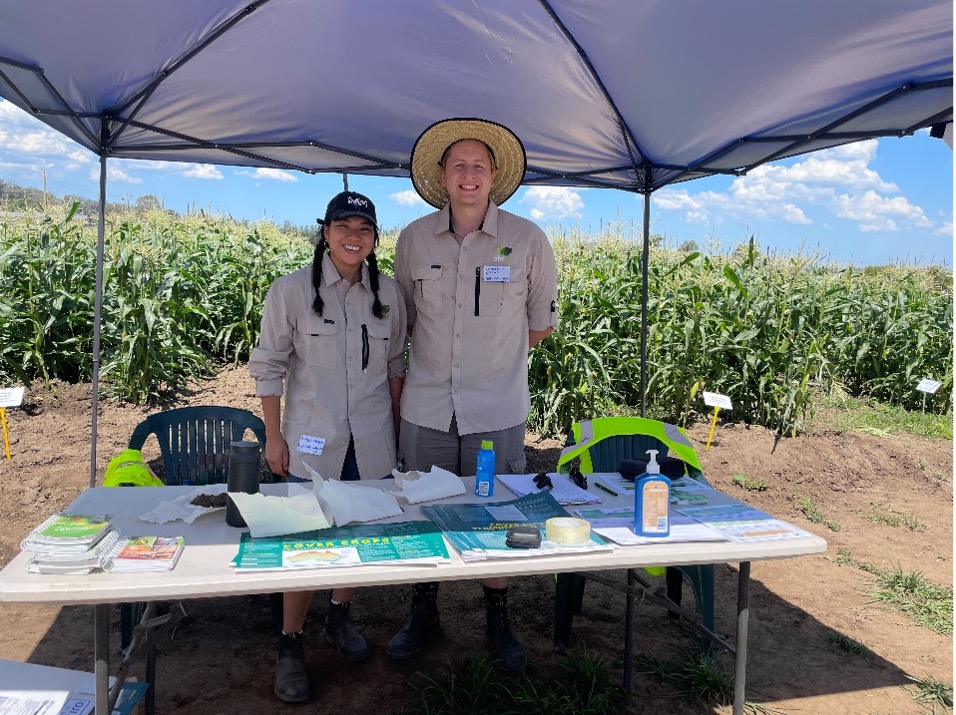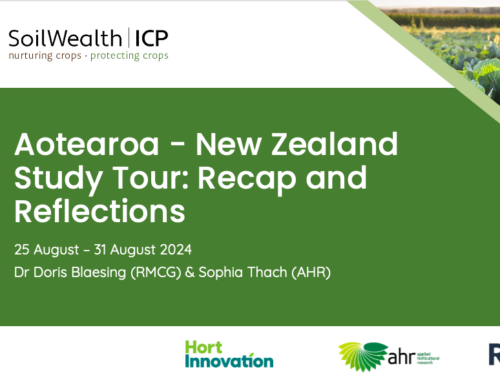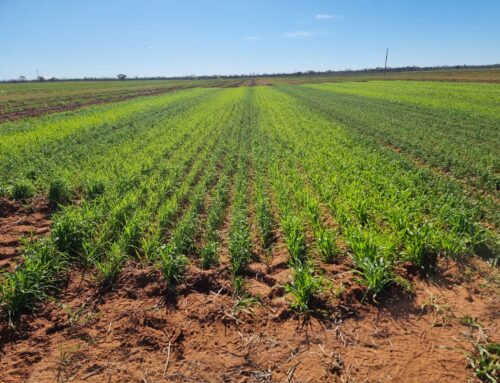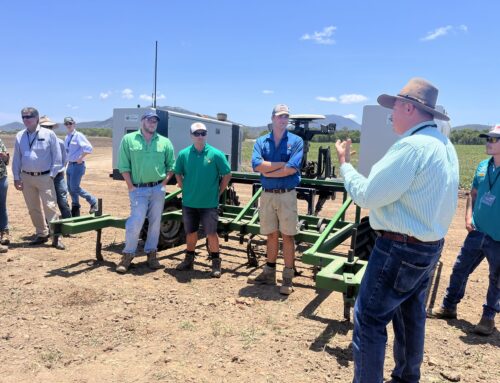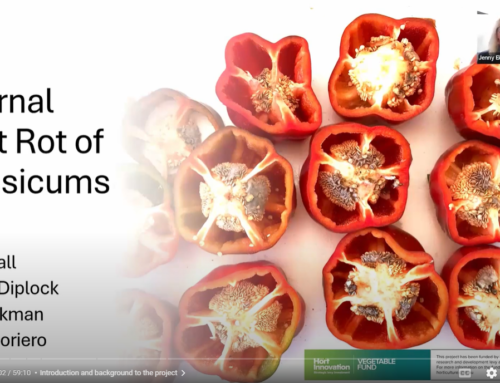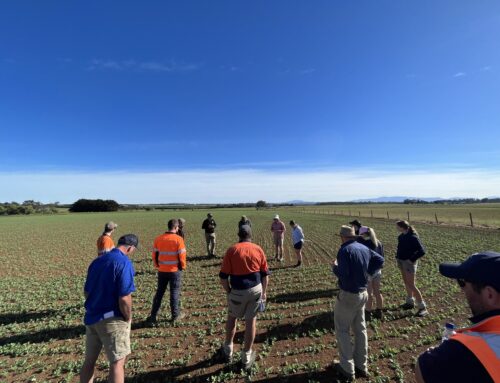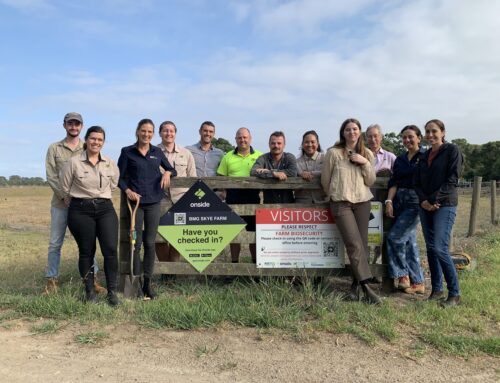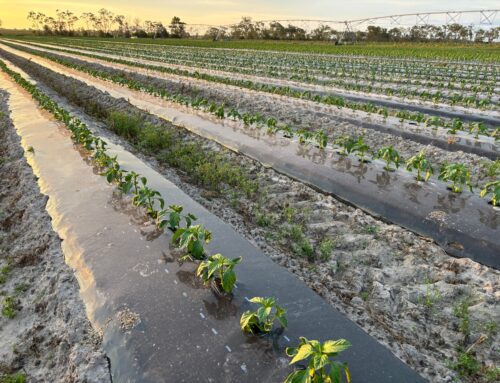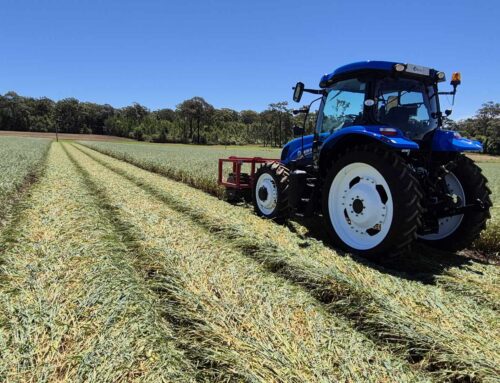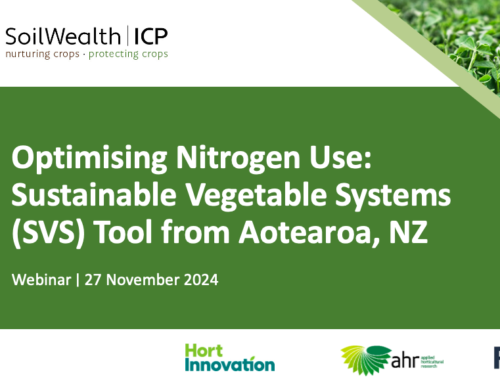Sophia Thach and Umberto Calvo from the SWICP team ended the year on a high, taking part in the NSW Vegetable Innovation Day, organised by Local Land Services (LLS), at the Riverfarm site in Richmond.
The pair presented the SWICP trial on cover cropping and reduced tillage in corn, part of a 2-year collaboration between LLS and SWICP, which proved to be of great interest to growers and students alike.
The aim of the trial, and the demo site generally, is to encourage a shift from traditional practices that can be detrimental to soil health by adopting a more soil-friendly approach.
In a good example of show, not tell, the LLS is leading by example in the journey towards achieving healthy crops and healthy soils, with plans to adopt these practices for the whole demonstration farm.
The trial focused on adapting a rotary hoe – a widely used tool that makes a great seeding bed but with negative impacts on soil structure and stability – to be used as a sort of strip tillage implement by removing all blades but two, aligned with the corn planter. Reduced tillage only involved preparing the beds with the strip-rotary hoe, leaving most of the bed surface untouched. In contrast, the conventional practice included a pass of full rotary hoe on the beds and scuffling mid-crop for weed control.
Throughout the trial, observational data was collected on soil stability, crop health and weed pressure.
A case study is underway and will be published when the second part of this season’s trial is completed. The plots will keep following the reduced vs. conventional tillage comparison, growing a buckwheat cover crop over summer and preparing the soil for a brassica species to be planted for a demonstration day in May.
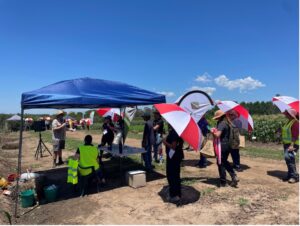
AHR’s Umberto Calvo discussing the demonstration trial

